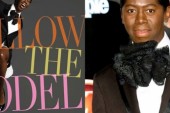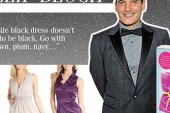
Text/Book, the Toronto Standard’s books column, is written by Emily M. Keeler and Chris Randle, plus occasional guests. This month’s is Steve Thomas, with an excerpt from his piece in the new magazine Little Brother (edited by Emily Keeler).
One morning in the last week of my first semester at Alabama I got out of bed and went outside to check my mail and saw I had a postcard from someone I’d been in a relationship with before I came down here which had ended in part because I came down here. The postcard was from New York, where she was apparently visiting. It was the first contact of any kind we’d had in months and the last day before one of my major term papers was due, and I cried then worked on my paper until I had to go meet my writing teacher in the student cafeteria for our weekly appointment at 4pm. I left my apartment early and edited my paper at a table with a large umbrella that shaded me from the sun outside the cafeteria because I didn’t want to stay in my apartment because of sadness. I could see through the window my professor and one of my fellow-MFAs, and when my fellow-MFA got up I went in and sat down at the table with my professor. Michael Martone, my professor, seeing my face, said “You still worried about Wikileaks? You look concerned.” I said “I got a postcard that made me unhappy.” He looked surprised and I said did I tell you about how I sort of broke up a relationship to come here? He said no. I told him the story of K., and he told me about breaking up with his girlfriend from back home in Indiana when she came to visit him in his first semester of grad school at Johns Hopkins, and then getting together with this other girl soon thereafter who became his wife, and with whom it was never stormy or extreme even at the start. I said I’d never had a relationship that wasn’t stormy and extreme, and after a while I had to look at myself and realize I was the common denominator. He said you know, some people are just like that. “You know Mary Karr?,” he continued.
“I’ve heard the name, I don’t know who she is,” I said.
“She wrote these memoirs, The Liar’s Club, Cherry, Lit. She was up at Syracuse when I was there. She had this magnetism, this energy, that, all the guys were in love with her. Everything all the time is in maximum drama mode. It’s very attractive to some people. You know David Foster Wallace, they were together there for a while, and they had a stormy relationship similar to what you’re talking about. Throwing chairs all over the place.”
“He was at Syracuse while you were there?”
“Well, he was actually in recovery there. He had come up to try to get away from New York and Boston, and Mary was also there, so he was living there for a while. That’s where he started Infinite Jest, actually.”
“Did you know him?”
“Oh, yeah. We had known each other from before. We were both Midwest kids. I had commissioned him to write something for an anthology. That’s what’s great about anthologies–‘I can’t pay you, but why don’t you write something?’ You know that essay about Illinois…” “The tennis and math one?” “Yeah, that’s the one. I got him to write that for this anthology, Homelands. He had also had doubts about the university system–you know, he had been at Arizona and had had an awful time–that was during the height of this realism resurgence, and he was writing what he was writing, and I had turned down Iowa to go to Johns Hopkins, so we would talk about that, you know. We would have these serious literary discussions”–he laughs–“and then he’d go home and throw chairs with Mary. Jonathan Franzen also came down while we were there, you know. He thought he wanted to get out of New York, he had this idea that we’d all hole up in this backwater town and write. I remember touring him around the town, going around to Raymond Carver’s house, which was up for sale, the three of us in the car. Tess had added $10 000 to the price–because it was Raymond Carver’s house. It was like, ‘This is a working class town, nobody can afford to pay that, and there’s a thousand other houses all over the city that look exactly like it that Raymond Carver didn’t live in’. I remember driving around town, and I could feel Jonathan, who had grown up in the suburbs of St Louis, thinking like, ‘Why am I going back to St Louis?’ I could literally see his face fall as we drove around. So he didn’t stay, he went back to New York. But yeah, David and I were together there for a while.”
Let me try to get at what this meant to me: The first eighteen years of my life I spent five minutes past Trans-Canada Highway 401, which marks the outskirts of Kingston, ON (my parents still live there). On a map, the Kingston Census Metropolitan Area, which wraps around the northeastern corner of Lake Ontario, is so close to the American border it almost bleeds over into it. As the crow flies, my childhood address on Battersea Road is about 18km, or 11 miles, from the American border. Syracuse, NY is about a two-hour drive from that point. The ABC I watched was the local Syracuse affiliate; I watched Syracuse news and weather. In fact, Kingston and Syracuse aren’t that different. They’re about the same size, they’re both university towns. But because of what America is, and what Canada is, and also because of the American MFA system–because a college in this small town in upstate New York happens to have a highly-esteemed MFA program–very different things are liable to happen in them. In Syracuse, literary legends past and future rent, feud, marry and die; in my Kingston, I watch Step by Step at 9 pm on a Friday. And two decades later, I’m listening to a tale peopled by characters whom a minute before had belonged to the most distant possible echelon of literature, set in a city so close to where I grew up that while all that stuff was happening in Syracuse, I was watching their meteorological report via my home’s roof antenna. And my professor can namedrop “Tess” without explanation, and he doesn’t have to explain, because I know all the characters in his stories, because this is like the mainline of American literary mythology, which, in my bedroom with a view of a rolling Great Lakes Basin cattle pasture, was what I was raised on.
As it happens, having my own personal romantic psychodynamics compared with the man hisself’s was sort of the final dealie that de-deified this writer who several additional previous revelations of mine re Canada/US differences orbited around. Those additional previous revelations had been due to (1) MetaFilter; (2) talking to the people here; and (3) another of my professors, Mr. Fred Whiting.
Relevant background: I’d finished reading everything DFW’d (then) published by 2004 and had duly felt my tiny mind shatter. In 2007, I started reading an “online discussion forum” called MetaFilter. A large majority of MetaFilter’s userbase is American, a significant proportion are very well-educated, and among those, a sizable minority are what is usually referred to as “hyper-educated liberal-arts types.” This is a type of person that doesn’t exist in Canada, not only because we don’t have a network of Americanesque small, private liberal-arts colleges but because of vast differences in economy and culture, and is the “type” of person, if any, that David Foster Wallace was. A funny thing happened when I first started reading MetaFilter. I started to notice a lot of the verbal tics Wallace had elevated into algorithm being used in the wild, by all kinds of different people. Grammatical things like his intensifying adverbs (“impossibly,” “hideously,” “abjectly”), cultural things like objectifying “primitive” cultures through things like “yurt” jokes, and general vibe-type things. As large and multitudinous as David Foster Wallace is, MetaFilter is larger and more. Not everyone on MetaFilter has read David Foster Wallace, and even fewer were so affected by his verbal proclivities that they aped them, consciously or otherwise, although DFW’s influence on some users’ commenting style, like many who grew up with him, is, as he might say, pellucid. The conclusion was clear: David Foster Wallace was born of these people, not vice versa. All these things I thought he invented, all these things I was giving his genius credit for, he was actually just re-jiggering, retooling, playing with, playing among.
Now, despite the MetaFilter demystification, when I first arrived here, I was still deeply obsessed with Wallace, and really, still to a large degree interpreted the world if not exactly through the lens of, then certainly with constant reference to his writings. However. Divine as he otherwise seemed to be, when I was still in Canada I always used to scoff at David Foster Wallace’s provincialism when he used “US” as a predicate to mean, as I saw it, “Western.” “U.S. sadness” and “U.S. loneliness” were favourites. But, I reasoned, by his own admission he had barely been outside US borders; how would he know which traits were U.S.-only and which were North American, Western or universal? Then I came here. And I got to know some US civilians. And, I think, maybe, I began to see what he was talking about. My fellow-matriculants in this MFA program seemed to have had adolescences not dissimilar to those “high-functioning” ephebes of IJ: my classmates had toured the country with high school band, they toured the country as Quiz Bowl champions, they were debating champs, they completed three BA’s in five years, they finished their BA at age 19–etc. The years of youth of the type Wallace paints in IJ, and, nonfictionally, in “Derivative Sport in Tornado Alley,” suddenly seemed not so invented.
And then there was Whiting. Fred Whiting was my instructor for ENG635, “Literary Criticism — Narrative,” and what happened was that in our first class meeting he used the phrases “aleatorics,” “fillip” and “Piaget’s second stage” in extemporaneous speech. We were not studying Piaget or developmental psychology of any description. This was his assumed general knowledge that he didn’t dumb down for anyone, even at the risk of being perceived as snooty or show-offy. Remind you of anyone? To me this bravado linguistic performance smacked so hard of DFW I almost dropped my copy of Cambridge Introduction to Narrative. Whoever this guy is, I thought, wherever he comes from–this guy is “of” the same class, he is “of” the same type, as DFW. They share a milieu. And so I’d stumbled upon yet another slice of Wallace’s gestalt he didn’t invent: upper-level academia, which it’s pretty safe to say Wallace is “of,” and in which this bravado/show-offy attitude seems to simply be the climate.
My point is not that Wallace sucks, but that there was a lot of context Wallace’s writing was operating in that I was ignorant of, and, perhaps, some pretty tall shoulders he was standing on that I hadn’t read, and this made the experience of reading him more mind-blowing than it perhaps otherwise would have been. And that this is an example of the idea that, when you experience the art of an artist from a context that’s not your context, you may be liable to overestimate their creative power, at the expense of your own sense of what it is artists do, and subsequently your own sense of self-worth as an artist.
And my other point is that, it seems to me, this issue may particularly afflict Canadians.
Excerpted from “Songs of Another World,” which appears in the first issue of Little Brother Magazine.
____
For more, follow us on Twitter at @torontostandard, and subscribe to our newsletter.














